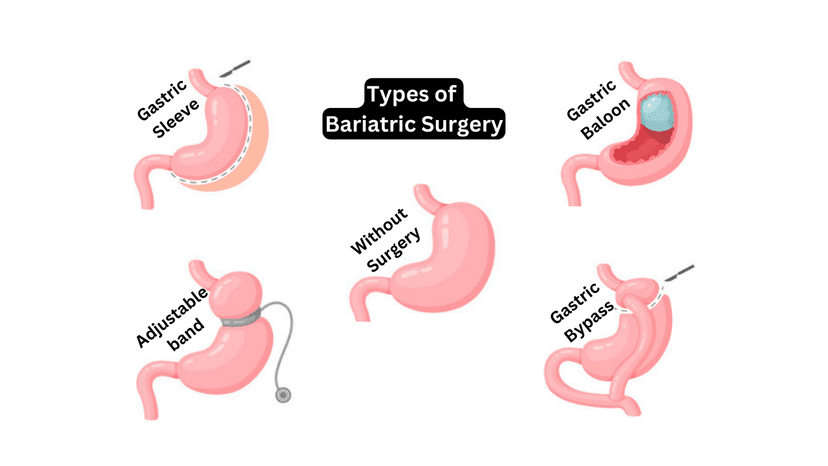The Financial Aspect: Managing Costs Associated with Post-Bariatric Life

Understanding the Costs Beyond Surgery
When people decide to undergo bariatric surgery as a final and desperate resolution for their obesity, these surgeries might seem like an expensive but worthy intervention. After all, the improvement in health and reduction in various risks associated with obesity certainly cannot be priced. However, what awaits post-bariatric surgery is a multitude of potential ongoing expenses that often catches people off-guard. Hence, it is crucial to understand the financial aspect of post-bariatric life, which extends much beyond the initial cost of the surgery itself.
Overview of Post-Surgery Expenses
The costs post-bariatric surgery goes far beyond the procedure itself and often include a wide array of expected and unexpected costs. Some costs are obvious, like the cost of dietary supplements, special foods, medical follow-ups, and potential additional procedures. Others, however, like the cost of replacing one's wardrobe and adapting to a new lifestyle, are not so readily apparent but can significantly impact one's budget. It's crucial to factor all ongoing expenses into your financial plan to avoid stress and enable a smooth transition into your new, healthier life.
The Need for Dietary Supplements and Special Foods
After bariatric surgery, the body's ability to absorb certain nutrients is significantly reduced. This leads to a lifetime need for dietary supplements to prevent nutritional deficiencies. While the type and amount of supplements can vary based on individual circumstances, most patients require daily multivitamins, calcium, vitamin D, and B vitamins. Costs can vary but should be anticipated as part of routine post-operative care.
Moreover, post-operative dietary guidelines emphasize protein-rich foods, which are often more expensive than carbohydrate-rich alternatives. Special foods may be required at times, like protein supplements and low-sugar or sugar-free foods. Bear in mind that what you save by avoiding eating out or purchasing high-calorie snack foods will help defray the expense of these healthier alternatives.
Medical Follow-Up and Potential Additional Procedures
Routine medical follow-up post-bariatric surgery is vital to ensure that your body is adjusting well and that nutritional needs are met. The frequency and related costs of these visits can vary based on individual health and the specific procedure performed. Furthermore, if complications arise, additional treatments or surgeries may be required, adding to the overall financial burden.
Another aspect to consider is that significant weight loss following surgery often results in excess skin, which is not simply a cosmetic concern but can lead to ongoing medical issues like skin infections. Many individuals find a need for plastic surgery procedures for skin removal, which often are not covered by insurance and can be a considerable expense.
In conclusion, managing costs associated with post-bariatric life is a significant part of the journey that extends far beyond the surgical procedure itself. Including these potential costs in your budgeting plans can lead to less financial anxiety and a smoother transition into post-bariatric life. Being well-informed about the entirety of the costs associated with a healthier life post-bariatric surgery will encourage a successful and maintained long-term weight loss.
Furthermore, gaining professional financial advice can be beneficial, as they can help you create a budget that is mindful of these new expenses, ensuring that they are manageable and do not become a financial burden. After all, investing in your health is one of the best investments you can make, and maintaining a sustainable financial plan can support you in this vital life-changing journey.
Budgeting and Financial Planning Strategies
Successful weight maintenance after bariatric surgery requires substantial changes in dietary habits and lifestyle, which can be associated with new expenses. But with careful planning, budgeting, and understanding different financing options, managing these costs becomes an achievable task, turning the new post-bariatric life into a rewarding journey.
Creating a Budget for Post-Bariatric Expenses
Though bariatric surgery might seem like a significant financial commitment, creating a budget can help manage your post-surgery expenses effectively. To break down your costs visually, consider constructing a budget spreadsheet to track your monthly income and expenses.
One of the most critical aspects of a post-bariatric life is ongoing nutritional requirements. Your diet will require healthy, high-protein food items that may carry higher costs than average food expenses. Additionally, you will have nutraceutical or supplement needs that should be included in your budget. Keeping these factors in mind as you create your spreadsheet leads to more accurate, effective financial planning.
Remember that costs can also come in the form of non-food items such as gym memberships, new clothing as your body undergoes changes, and possibly mental health support like counselling or therapy.
Maximizing Insurance Benefits and Exploring Coverage Options
Investigate your insurance plan thoroughly to understand what components of your post-bariatric expenses are covered. Check whether your policy includes post-bariatric supplements, dietitian consultations, psychological counseling, or any cosmetic surgery necessary after massive weight loss.
If your current insurance policy does not cover these aspects, explore different insurance providers and their coverage options. Some insurers offer plans specifically targeted towards bariatric patients, covering everything from the surgery itself to nutritional support post-operation. Understanding your coverage is key in managing financial aspects of your post-bariatric life.
Saving Tips for Dietary and Clothing Needs
Planning and preparing meals in advance, commonly known as meal prep, can save both time and money, while also ensuring you adhere to your dietary requirements. Bulk purchasing and taking advantage of sales and discounts can lower food expenses.
Clothing needs following bariatric surgery will change as your body transforms. Clothing swaps, sales, consignments stores, and purchasing from online marketplaces offer affordable options.
Ultimately, it's important to remember that while life after bariatric surgery carries its costs, the benefits in terms of improved health and quality of life are immeasurable. Strategic budgeting and planning are the keys that make this new journey possible and rewarding.
Accessing Resources and Support for Financial Management
In the aftermath of bariatric surgery, adapting to new lifestyle changes can be challenging, and it often comes with an assortment of costs that might be hard to handle. However, there are several channels that can provide financial assistance and emotional support to aid in managing these challenges. Here, we will delve into the varying resources available, including support groups, patient advocacy organizations, and professional financial planning services that specialize in healthcare costs.
Leveraging Support Groups and Online Communities
The first path to accessing resources and support consists of support groups and online communities. Support groups and communities harbor individuals who have undergone similar experiences and can offer firsthand advice and moral support. More importantly, they can supply a plethora of information about financial aid resources specific to post-bariatric life, and offer guidance on controlling the associated expenses. Identifying these groups may be as simple as conducting an internet search for "bariatric support groups" or consulting with your healthcare provider for recommendations.
Some of the benefits of support groups include:
- Information on charities offering grants or financial assistance programs for post-bariatric lifestyle adjustments.
- Tips for managing lifestyle costs from experienced members who have found practical solutions.
- Emotional support that can indirectly effect financial management by alleviating stress and offering moral support.
Utilizing Patient Advocacy Organizations
Patient advocacy organizations are another excellent avenue for obtaining financial management assistance. These agencies play a critical role in patient rights, supporting individuals to navigate the complex healthcare system, dispute medical bills, and even secure financial aid. They are particularly helpful for people struggling to deal with heavy healthcare associated costs. Reach out to your hospital's patient advocate or search online to find a suitable organization.
Patient advocacy organizations can:
- Help to contest or negotiate down exorbitant healthcare bills.
- Provide education on how to interpret medical bills, which can be complex and challenging.
- Assist in searching for and accessing financial assistance programs catered to bariatric patients.
Seeking Professional Financial Planning Advice
Lastly, seeking the advice of financial planners specializing in healthcare costs can help you create a post-surgery financial plan. These professionals can assist in budgeting for new lifestyle changes, planning for out-of-pocket costs, and building a sustainable financial plan for your future health.
Some of the benefits of using a financial planner include:
- They can provide a holistic view of your financial situation, helping you understand how your healthcare costs fit into it.
With their specialized knowledge, they can offer advice specific to healthcare costs that most general financial planners may lack. 3. They can assist in planning for long-term financial success, taking into account the full range of possible future healthcare costs.
In conclusion, managing the costs associated with life after bariatric surgery requires emotional support, access to resources, and strategic planning. By leveraging support groups and online communities, utilizing patient advocacy organizations, and seeking professional financial planning advice, you're setting yourself up for a sustainable financial future.
In Summary
This blog post primarily aims at offering crucial insights into the array of potential costs post-bariatric surgery and how to manage them effectively. Post-bariatric expenses extend far beyond the surgery itself and may include significant expenses for dietary supplements, special foods, and routine medical follow-ups. Unforeseen costs like wardrobe replacement, lifestyle adjustments, or additional medical procedures can also significantly impact your budget. Therefore, keeping yourself well-informed about the possible financial burden post-surgery, maintaining a budget, maximizing insurance benefits, and gaining professional financial advice can all aid in facilitating less financial stress and a smoother transition to a healthier life.
The post brings attention not only to actionable strategies for financial planning and budgeting, such as crafting a detailed budget for post-surgery life, harnessing insurance benefits, and tips for saving on dietary and clothing needs, but also focuses on the importance of accessing resources and support for financial management.
To implement the insights from this blog post, here are three action steps:
-
Create Your Post-Bariatric Surgery Budget: Set up a detailed budget by factoring in post-surgery costs such as dietary supplements, special foods, gym subscriptions, clothing changes, and potential additional medical procedures.
-
Explore Insurance Benefits and Coverage Options: Thoroughly investigate your insurance plan to understand which parts of your post-surgery expenses are covered. If necessary, explore options for changing insurance plans to better cater to your new requirements.
-
Leverage Available Support and Resources: Join support groups and online communities, seek aid from patient advocacy organizations, and consider approaching financial planners specifically experienced in healthcare costs for advice.
Following these steps would allow you to strategically plan for a post-bariatric life, thus ensuring the surgery does not become a financial burden, but rather a sustainable means of achieving a healthier, more fulfilling life.

